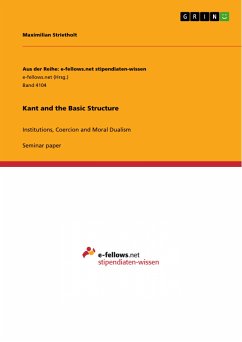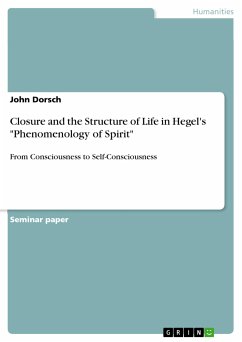Seminar paper from the year 2021 in the subject Philosophy - Philosophy of the 19th Century, grade: 1,0, University of Frankfurt (Main), language: English, abstract: Rawls's claim that the primary subject of justice should be the basic structure of a society - I shall call this his basic structure claim - has been a central point of discussion for a variety of debates within political theory. Not only has it been attacked from both libertarians and socialists alike, but it has also played a crucial role in feminist critiques of Rawls. Above all, its importance can hardly be overstated with regard to questions about transnational justice: The cosmopolitanism-vs.-statism debate can to a large part be traced back to different conceptions of the basic structure, respectively resulting in different views about the scope of principles of justice. In contrast to the pivotal significance of this claim, however, Rawls seems to assume rather than really justify it, which is part of why many have found it dubious at least, if not straightforward wrong. After shortly outlining the core aspects of that discussion in section 2, my aim in this paper will therefore be to develop a more profound account of the basic structure, based on a particular interpretation of Kant's Doctrine of Right. In doing so, I seek to answer two questions. The first is: In which sense are institutions "different" subjects of justice after all? This question will be addressed in section 3 and 4. The second is: How do normative principles apply differently to institutions than they do to individual conduct? This will be the topic of section 5 and 6.
Dieser Download kann aus rechtlichen Gründen nur mit Rechnungsadresse in A, B, BG, CY, CZ, D, DK, EW, E, FIN, F, GR, HR, H, IRL, I, LT, L, LR, M, NL, PL, P, R, S, SLO, SK ausgeliefert werden.









